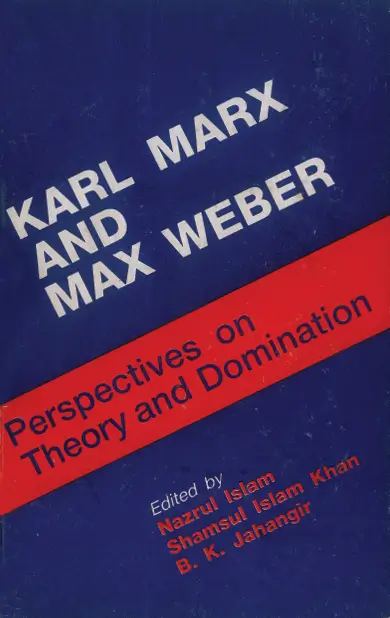
Karl Marx and Max Weber
Perspectives on Theory and Domination
Karl Marx and Max Weber
Charisma, Legitimacy and Crisis : Reflections in a Bengali Novel
Karl Marx and Max Weber
Perspectives on Theory and Domination
DOI:
ISSN :
Abstract
To the laity, MacRae (1974) asserts, the fame of Weber rests on his concept of charisma. A number of social scientists have also found it a powerful analytical tool for an imposing phenomenon of contem- porary Third World (Dow, 1976; Benda, 1967; Fagen, 1965). Yet a theory of charisma is far from adequately developed in the writings of Weber. The concept has been found to be ambigious, contradictory and useless. In fact "... the vast torso of Weber's work, as it lies before us, can directly contribute to the current debates in social theory, unless it is throughly reinterpreted" (Roth, 1985: XVIII). In the course of resurgence of Weberian studies in recent decades efforts have been undertaken to reinterpret the concept of charisma and even move beyond Weber to flesh out a theory of charisma. Schluchter (1985) has made a major contribution towards this goal by reinserting a clearer view of chairsma within a developmental matrix of Weber's theory. Cavalli (1987) has focussed upon a mesolevel analysis of charismatic process,
